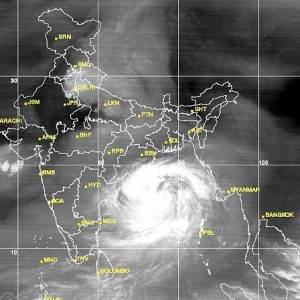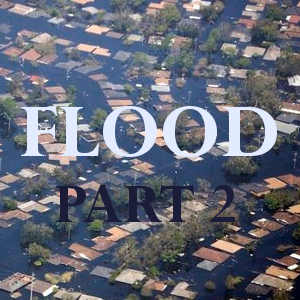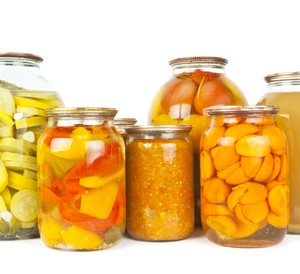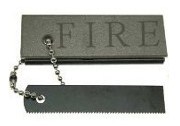|
|
 by Michael Green by Michael Green
Tires are the shoes of your car. They are (ideally) the only part of your vehicle that is supposed to be making contact with the road, making sure that control over the multi-horsepower machine is maintained as it travels over the road at speeds unattainable by mere land-dwelling animals.
While they are meant to be worn down, some of us motorists aren’t exactly doing it the right way. The result? The tires need to get replaced way before they were expected to. Worse, they could give out on you while you’re on the road, sometimes in the most catastrophic of ways.
The time, money, stress, and risk to life and limb just aren’t worth being careless with your automobile’s tires, so for the sake of educating my fellow car owner and driver, here are some common causes of premature tire wear and damage, and ways to avoid them:
Incorrect Tire Pressure
This is probably one of the most frequent causes of tires having uneven tire wear and inevitably, damage that can seriously affect the performance and integrity of the tire. Various tire sizes and types have (Read more....) […]
 by Stacey Thompson by Stacey Thompson
Hurricanes and typhoons are very powerful storm systems that pack powerful winds and rain that have the capability of causing massive destruction to property and loss of life. For us, two hurricanes have left their mark on our collective memories, hurricanes Katrina and Sandy
Whichever side of the fence you are on about global warming, it is an undeniable fact that the more erratic and forceful weather patterns are connected to this phenomenon. The ferocity and frequency of these destructive events are increasing, and thus, more people are affected, their property and lives at the mercy of nature’s wrath.
If anything, physical evacuation from the affected area is probably the safest thing you can do, provided you have both the luxury of time ahead of the actual event, the proper logistics, and a place to stay away from the potential calamity. For those that do not have such an option, or insist on staying in their homes, it is imperative that the proper preparations (Read more....) […]
 by Stacey Thompson by Stacey Thompson
Flooding continues all around the world at a frequency and severity like we never seen before. A decade ago, this would have been considered an alarmist statement, but the incidences of destructive flooding have become so commonplace that some are already becoming desensitized to it. Give it a few more years, and it’ll be considered an everyday part of life.
For what part of this problem is caused by human carelessness is moot; if this indeed due to our carelessness, it was committed by our forebears a few generations ago. The damage has been done, and the best we can do is to not make things any worse by continuing humanity’s environmentally hazardous habits. In that sense, we are suffering due to their mistakes. Let us make sure that our own children don’t suffer on our behalf.
I realized that I didn’t cover all the bases in my previous guest post, and I aim to supplement that previous entry with more bits of advice and information. Here we go…
Vehicles
Once you’ve surmised how your area fares in a flooding situation (either by actual experience or finding (Read more....) […]
 Superstorm Sandy was a stark reminder of potential climate change and a new normal when it comes to natural disasters. Some people in the Northeast were without power for weeks following the storm, while others had to wait hours in line for a couple gallons of gasoline. Every household should have a survival kit containing the essentials needed to weather the storm until normalcy can be restored. The cost to compile the kit is nothing compared to what life will be like without it in the aftermath of disaster. Superstorm Sandy was a stark reminder of potential climate change and a new normal when it comes to natural disasters. Some people in the Northeast were without power for weeks following the storm, while others had to wait hours in line for a couple gallons of gasoline. Every household should have a survival kit containing the essentials needed to weather the storm until normalcy can be restored. The cost to compile the kit is nothing compared to what life will be like without it in the aftermath of disaster.
Water
Human beings can only survive a maximum of five days without water, and that is under ideal conditions. Floods, hurricanes and earthquakes can knock out municipal water sources for weeks at a time. Whether in the basement, attic or spare room, a few gallons of water should be stored in every home, especially when there are children. Some water may still flow through the pipes when the faucet is turned on, but it could be contaminated with bacteria. Purification tablets can be (Read more....) […]
 It is hard to be able to know when disaster will strike, but you can prepare you and your family for the event of a natural disaster. There are a lot of things that can happen, and if you are prepared for these types of events, you will be able to survive even the worst events. It is hard to be able to know when disaster will strike, but you can prepare you and your family for the event of a natural disaster. There are a lot of things that can happen, and if you are prepared for these types of events, you will be able to survive even the worst events.
You can never be prepared enough, and there are a lot of things that you will need to get by should services in your community be cut off due to a natural disaster. Having an emergency plan, and natural disaster checklist of the most important things that you will need in the case of an emergency, will help you to be prepared for one of these events.
Developing Your Emergency Plan for Natural Disasters
There are a lot of types of emergency situations that can happen, and having a plan of action will help you to be prepared for what may happen in the event of an emergency. This is even truer for natural disasters that can happen at any time.
There are a lot of components to a well-planned emergency plan, you may want to use a checklist and include some of these important items:
· First aid kit
· Medications
· Emergency Generator
· Flash Lights
· (Read more....) […]
 By SurvivingSurvivalism.com By SurvivingSurvivalism.com
If you have a bug-out location anywhere preferable, you are most likely entirely too far from the external world to pick up on 3G or T3 internet service. The only option in this idyllic location, is a satellite internet connection. This is at least simple to install and maintain. The downside is the very limited bandwidth this connection is capable of carrying. Let’s discuss how to keep your bandwidth to a minimum.
1.Flash Block add-on will stop all flash media, youtube videos, banner adds, etc., from loading on a web page without your permission. These flash files eat up bandwidth and slow the page loading down. A blue .swf icon appears in place of the unloaded flash content and you can click on the flash media that you do want to (Read more....) […]

Emergencies can happen to anyone and anywhere, including our children. As much as we want to be there to protect our child, we may not always be able too. So here are 5 things you can teach your child so that they know how to handle an emergency without your help:
Educate:
Your child needs to know all the possible emergencies that could happen whether that is natural disasters or dealing with strangers. The more they know, they more they will be able to handle an emergency situation. With each emergency they need to know what can be expected, as well as to expect the unexpected, what to do when it happens and how to keep safe. Create emergency plans and practice!
Seek help:
Teach your children who to contact during an emergency. They need to know how to dial 9-1-1 as well as notify an adult or parent for help. Keep a list of important phone numbers at every phone within in your home, always place 9-1-1 at the top of the list.
Stay calm:
It is important that your child knows how to remain calm and keep a clear head during an (Read more....) […]
|
|
















